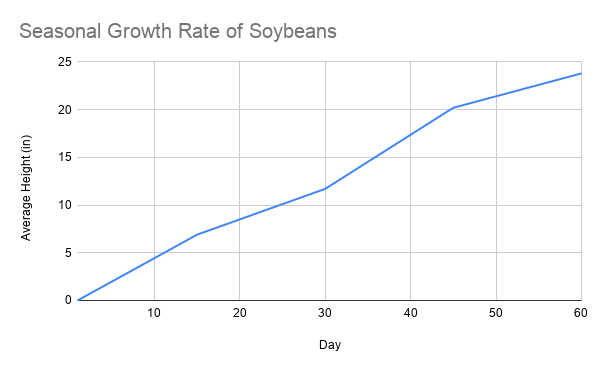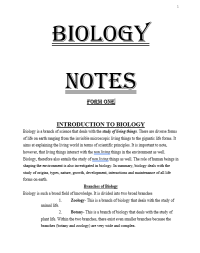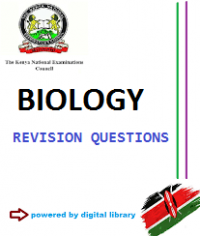Find what you need to study

Biology Long Essay Free Response Questions
9 min read • january 6, 2021
Jessica Nadzam
Overview of the Long Essay (FRQ) Questions
The AP Biology exam used to consist of eight long-form free response questions, but in 2019 it was redesigned to consist of only six free response questions. Two of those questions are in the “long” form, and these consist of 50% of the free response score, or 25% of your total score.
Long story short, those two questions make a biiiiiiiiig impact on your score!
The long essay questions will always be the first two on your exam, so you’ll see them as soon as you open the test booklet. You have to write in blue or black ink (for all things that are good, please do not use a pencil), so have a few of your favorite pens ready. You’ll have lots of pages to write on (if you use all of them, you may have written too much), and you’ll be given a copy of the Formulas and Equations sheet for any calculations you need to do.
Questions are between 8-10 points apiece, and they typically contain content and problems concerning multiple content areas. You could initially respond about protein structure in the first part and then end up describing the evidence of evolution by the end of the question. There’s a lot of points on the table, and CollegeBoard will make you work for them.
There is one guarantee on the long essay portion, and that is that one of these questions will ask you to graph something, but IMHO, this is the easiest part. Graphs are usually just that - graphs! And they’re worth three whole points just for plotting some information from a table - woohoo! I always tell my students to go straight to the graph and complete it, if possible. Just remember that when you complete that graph, you must:
Scale your graph appropriately
Label the axes and use proper units (if you don’t list your units, this point won’t count)
Plot the actual data
Pretty simple, right?
Response Grading (from a former AP Reader)
There are almost twenty points in this section, and they make up 25% of your AP Biology score. So, how are those points calculated and scored? CollegeBoard is fantastic at writing rigorous questions, but they’re also very good at training their graders (called AP Readers) how to objectively score the questions. Readers spend a whole day training to grade just ten points worth of questions, and then spend a whole week grading only those questions, eight hours a day .
A well-oiled machine may be an understatement. The bottom of the line is, AP Readers know exactly what they’re looking for when they’re grading. They read a hundred tests a day (minimum), and if you don’t have the answer they’ve been told is the right answer, they tend to move on pretty quickly.
While this seems intimidating, it’s actually good news for you - but only if you pay very close attention to the next section on verbage. You see, the bolded verbs in AP free response questions are just hints as to what AP Readers are looking for in an answer. If you know those verbs backwards and forwards, you will know what type of response AP Readers want. And if you know that, you don’t have to worry about writing something that may be right content-wise, but still missing a point on a technicality.
Essential Verbiage
There are a lot of verbs used in AP exams to pose questions for students to ponder and rip their hair out over.
To keep all that hair on your head, we’ve made you a table. It’s pretty easy - if you know exactly what to do when you encounter each bolded verb , you know exactly what to do to answer the question the way the Reader wants to see it. You know how many points it's worth, and therefore can figure out how much time to spend on it.
Side note - keep in mind that if a question asks you do something more than once - maybe to describe two factors or explain three phenomenon, you should multiple that # Points by however many things it expects you to do.

Strategies for 5able Responses
Do you want a 5 on this test? Then here’s what you need to know and be able to do:
Read. The. Question. Care. Fully. Seriously. You don’t know how many students miss points because they were skimming and missed a critical word. It’s a heartbreaker for Readers, who want to give you that point, but can’t. Also, read the directions carefully. Your papers always say something about how responses on the actual question page will not be scored. Do not write on the question page . You can for brainstorming or outlining as scratch paper, but if your words aren’t written on lined paper or a graph or table, they won’t be scored. So make sure you put your answers in the right place!
Complete. Sentences. Unless it’s an identify or construct or calculate question, you need a capital letter and a period, or the Reader will not grade that response. Period. Outlines, bulleted lists, and drawings won’t be graded unless specified in the question’s directions.
Circle your bolded verbs . Find them. Figure out which are worth the most points, the least points, will take the longest, will be the quickest, etc. Then, figure out which ones to answer first.
When you start the test, you don’t have to go in order. If your mind goes blank on question one, skip it . It’s not going anywhere, you can come back to it. But don’t waste time on it when there are others you can definitely answer later in the booklet.
Skip around to answer these types of questions first, as they are worth the most points and/or are the quickest to answer: Construct a graph, Design an experiment, Identify, Graph/draw. Most other question types take longer just to read the question and write out the full answer, so these are the quickest and most bang-for-your-buck question types.
Time yourself. You get 90 minutes, but it goes by fast. Keep a digital watch that does not beep , and refer to it regularly. Plot how long you want to spend on each question so you don’t waste time in one area and lose points on another question you could have easily answered.
This is not AP English. The graders are not English teachers. They don’t care how pretty your introduction is or how thought-provoking your thesis statement is, so don’t write these. Skip the fluff and go straight to the point. Don’t restate the question or introduce the topic or regurgitate random knowledge - it won’t get you extra points, it’s a waste of time for you, and the Readers get bored sorting through all your thoughts and writing.
Label your responses . While you still have to write in complete sentences, please label each response with a, b, c, etc. if the essay question has multiple parts. You don’t even have to go in order, but this helps Readers find your answer so they don’t have to sift and guess what you meant.
COMMIT TO YOUR ANSWER . Readers don’t like wishy-washy papers. Erase the words “might” and “possible” and “I think” from your vocabulary. You could be completely wrong, but if you’re writing about a purple hippopotamus, COMMIT to that purple hippopotamus. Don’t say “I think the purple hippopotamus might possibly maybe do photosynthesis if it feels like it.” That’s wishy washy, and Readers don’t accept that as an actual answer, so they won’t give points for it. Be committed , and loudly proclaim “This purple hippopotamus does photosynthesis!” Ta-da!
If possible, always give an example. We said earlier not to mind dump and regurgitate, but examples are usually a good way to sweep up an extra point or two if you have budgeted your time wisely and can accurately apply it to the scenario. Examples should be a demonstration of the phenomenon you’re describing. ~For example~ if you’re asked to describe the differences between natural and artificial selection, a good example of artificial selection would be to discuss the development of different dog breeds for different traits and features.
Now that’s we’ve passed on the knowledge, let’s take it out for a test drive. Below you will find a sample question with tips to apply to maximize your time and points for that Fiveable 5 score!
Sample Question
Soybeans, or Glycine max , are grown and harvested in the American delta. They are a popular crop and are used in a variety of foodstuffs including soy milks, tofu, and other added ingredients. As a high protein bean, they are very popular and fast to grow, with only sixty days from planting to harvest. However, they are very sensitive to their environments, and farmers frequently worry about frost destroying their crops. Also, they do not work alone. Soybeans rely on fungi in their roots (mycorhizzae) to exchange nutrients and fix nitrogen.

a) Construct a graph of soybean grown between days 1 and 60.
b) Draw and label a line for your prediction if the mycorhizzae were not present in soybean roots. Explain why this would occur.
c) The mycorhizzae in plant roots are responsible for fixing nitrogen that plants need. Identify the type of relationship that occurs between the plants and the mycorhizzae, and make a claim as to why it is beneficial or harmful.
d) Botanists recommend rotating soybean fields every three years or so. Typically, farmers will alternate soybeans and corn in different fields. Describe why this is done and how it benefits the plants and their environments.
Sample Question Answer Key
Phew. That’s a lot of words, a lot of scientific terminology, and a lot to answer in approximately twenty minutes - the maximum amount of time you should spend on one FRQ. Remember, you don’t have to answer questions in order and you can pick and choose parts to answer each time, but for the sake of this example, I’ll be moving from a-d.
Before we answer, let’s do some quick recon. It’s question one, so we know it’s a long FRQ. It’s got four parts, and six parts are bolded. We tally it up, and we find this question is worth 10 points . But we don’t panic, because we know how to tackle these AP verbs!
Part A is pretty simple, and I recommend doing it first. Draw and label the graph. I’ve linked my example below. Notice that I labeled my axes and made sure to include my units ( 1) , and the scales on my graph are equidistant and accurate ( 1 ), and I plotted my points correctly ( 1) . Ding ding ding, that’s three points right there!

Moving on to Part B, we’re asked to draw a line. Okay, cool, we can do that. But where do we draw the line? Remember, this is only 1 point, so it’s okay to skip it for now if you aren’t sure. Definitely don’t waste your time wracking your brain if it baffles you. But, if you were to draw it, you’d have a flat line on the bottom of the X-axis. Why? Because mycorrhizae are essential for plant growth. Without them, the plant wouldn’t survive.
We’ve got 4 points total and two more parts to go, so there’s going to be a lot expected from these questions. Part C wants you to identify a relationship between a plant and a fungus - that’s Ecology 101 again, and the answer is “mutualism.” Remember, since this is an identify question, we don’t need complete sentences, just the one word answer to get our 1 point. Yay, time saved! For the make a claim portion, explain this relationship. Why is it good or bad? Well, it’s mutualism, which means both parties benefit. For this one, you do need complete sentences, but since it’s just 1 point, one complete sentence defining mutualism should suffice. Finally, we get to the finale - Part D. The Describe question. Students typically love or hate these, because they leave a bit of wiggle room in the answer, but they also take a lot of time. Since this one is worth 2 points, we want to take the time to answer it correctly. Why do farmers rotate their crops? The key part to a describe question is identifying the phenomenon or concept, and then explaining it or illustrating it with an example. So in this case, we want to identify that crops are rotated to keep nutrients from being overused, and then provide substance to that answer by saying what nutrients are needed for, how they rebuild over time, etc.

Stay Connected
© 2024 Fiveable Inc. All rights reserved.
AP® and SAT® are trademarks registered by the College Board, which is not affiliated with, and does not endorse this website.
Woolton Tutors
One-to-one tutoring in science, maths and languages

How to answer A-level Biology essay questions

The Synoptic essay questions in paper 3 of the AQA A-level biology course carries 25 marks, so can make a big difference to your overall grade. The essay encourages you to think across different topics (some call this “synoptic” or “holistic” thinking). This is also valuable for other areas of the exams, particularly the application questions .
Here are a few tips for tackling your A-level biology essay: (As an example, Let’s use the title “The importance of movement in cells and tissues”)
Think broadly…
Essay titles are deliberately vague to give you the chance to show your knowledge in a variety of topics. To help you to choose what’s most relevant, look out for subjective words like “movement” and “cells”. Think of the possible alternatives. “Cells”, for example, hints that you could discuss plants, animals, single-celled organisms etc. in your essay. “Movement” could mean short distances (across a membrane) or much further (circulation or mass flow) or even the whole tissue moving (phototropism).
Visualize and catastrophize!
If you can’t think of enough topics for an “importance” essay, flip the question around – what would happen if movement in cells suddenly ground to a halt? Or if ATP suddenly vanished, or our cells were robbed of their ions? Sometimes catastrophizing in this way frees up thoughts, and helps you see what is really important. Another way is to picture every diagram in your notes or textbook that features the thing-that’s-important-in-the-question. If it’s in a diagram, it could go in your essay.
Pick your strongest topics
It’s possible to drop marks on the essay for scientific errors. With that in mind, even if you have lots of ideas for things to include, always pick the topics you can write confidently about. For bonus marks, try to order them in a way that “flows” like a story. Take care to use A-level (and not GCSE) language too.
Keep an eye on the question
While you’re writing, keep asking yourself “Where am I placing the emphasis?”. If the essay is about movement, perhaps you don’t need a whole page about nervous responses, only the bits where movement is involved – sodium ions flowing through channels, waves of depolarisation etc. Movement is the focus of the essay, after all, not neurons. Always ask yourself “Does this sentence fit with the title of the essay?”
Use outside knowledge
The top marks for the essay are reserved for displaying “evidence of reading beyond specification requirements”. Often you can drop recent scientific research or news into your writing – how vaccines tackle COVID might work in an essay about viruses, for example. I often encourage students to have a quick look at the news pages of New Scientist pages (eg https://www.newscientist.com/subject/health/ ) before paper 3 for inspiration – you don’t need to spend ages doing this, just long enough to have one or two ideas up your sleeve…
Good luck with your essay!
If you’d like to work through some example essay questions, please get in touch with me at Woolton Tutors (or Woolton Biology) and we can set up some online biology tutoring sessions.
Best wishes,
Dr John Ankers
Specialist online A-level biology tutor
www.wooltontutors.co.uk
Share this:
Author: Dr John Ankers
Dr John Ankers is a tutor, coach and writer. For writing and consultancy work, please contact me at [email protected] View all posts by Dr John Ankers
Leave a Reply Cancel reply
Your email address will not be published. Required fields are marked *
Notify me of follow-up comments by email.
Notify me of new posts by email.
Welcome, Login to your account.
Recover your password.
A password will be e-mailed to you.

BIOLOGY TOPIC BY TOPIC QUESTIONS AND ANSWERS
Biology topic by topic questions and answers , you can download all the biology questions and answers for all topics for form 1, form 2, form 3 and form 4., the list includes all biology questions with their answers. use the links below. click on a link to a specific material., form 4_heredity questions, form 4_heredity answers, form 4_cell divsion questions, form 4_cell division answers, form 4_applied genetics questions, form 4_applied genetics answers, form 4_4. support and movement in plants and animals q, form 4_4. support and movement in plants and animals a, form 4_3. reception response and co ordination q, form 4_3. reception response and co ordination a, form 4_2. evolution q, form 4_2. evolution a, form 4_1. genetics q, form 4_1. genetics a, form 4 - support and movement in plants and animals questions - teacher.co.ke, form 4 - support and movement in plants and animals a - teacher.co.ke, form 4 - reception, response and co-ordination questions - teacher.co.ke, form 4 - reception, response and co-ordination a - teacher.co.ke, form 4 - genetics questions - teacher.co.ke, form 4 - genetics a - teacher.co.ke, form 4 - evolution questions - teacher.co.ke, form 4 - evolution a - teacher.co.ke, form 3_plant reproduction questions, form 3_plant reproduction answers, form 3_personal health questions, form 3_personal health answers, form 3_human reproduction questions, form 3_human reproduction answers, form 3_asexual reproduction questions, form 3_asexual reproduction answers, form 3_4. growth and development q, form 3_4. growth and development a, form 3_3. reproduction in plants and animals q, form 3_3. reproduction in plants and animals a, form 3_2. ecology q, form 3_2. ecology a, form 3_1. classification ii q, form 3_1. classification ii a, form 3 - reproduction in plants and animals questions - teacher.co.ke, form 3 - reproduction in plants and animals a - teacher.co.ke, form 3 - growth and development questions - teacher.co.ke, form 3 - growth and development a - teacher.co.ke, form 3 - ecology questions - teacher.co.ke, form 3 - ecology a - teacher.co.ke, form 3 - classification ii questions - teacher.co.ke, form 3 - classification ii a - teacher.co.ke, form 2_transport plants questions, form 2_transport plants answers, form 2_skin temperature questions, form 2_skin temperature answers, form 2_food diet questions, form 2_food diet answers, form 2_excretion questions, form 2_excretion answers, form 2_digestion questions, form 2_digestion answers, form 2_breathing questions, form 2_breathing answers, form 2_blood circulation questions, form 2_blood circulation answers, form 2_5. excretion and homeostasis q, form 2_5. excretion and homeostasis a, form 2_4. respiration q, form 2_4. respiration a, form 2_3. gaseous exchange q, form 2_3. gaseous exchange a, form 2_2. transport in animals q, form 2_2. transport in animals a, form 2_1. transport in plants q, form 2_1. transport in plants a, form 2 - transport in plants questions - teacher.co.ke, form 2 - transport in plants a - teacher.co.ke, form 2 - transport in animals questions - teacher.co.ke, form 2 - transport in animals a - teacher.co.ke, form 2 - respiration questions - teacher.co.ke, form 2 - respiration a - teacher.co.ke, form 2 - gaseous exchange questions - teacher.co.ke, form 2 - gaseous exchange a - teacher.co.ke, form 2 - excretion and homeostasis questions - teacher.co.ke, form 2 - excretion and homeostasis a - teacher.co.ke, form 1_respiration questions, form 1_respiration answers, form 1_photosynthesis questions, form 1_photosynthesis answers, form 1_diffusion osmosis questions, form 1_diffusion osmosis answers, form 1_cells tissues questions, form 1_cells tissues answers, form 1_cell chemistry questions, form 1_cell chemistry answers, form 1_6. nutrition in animals q, form 1_6. nutrition in animals a, form 1_5. nutrition in plants q, form 1_5. nutrition in plants a, form 1_4. cell physiology q, form 1_4. cell physiology a, form 1_3. the cell q, form 1_3. the cell a, form 1_2. classification i q, form 1_2. classification i a, form 1_1. introduction to biology q, form 1_1. introduction to biology a, form 1 - the cell questions - teacher.co.ke, form 1 - the cell a - teacher.co.ke, form 1 - nutrition in plants questions - teacher.co.ke, form 1 - nutrition in plants a - teacher.co.ke, form 1 - nutrition in animals questions - teacher.co.ke, form 1 - nutrition in animals a - teacher.co.ke, form 1 - introduction to biology questions - teacher.co.ke, form 1 - introduction to biology a - teacher.co.ke, form 1 - classification i questions - teacher.co.ke, form 1 - classification i a - teacher.co.ke, form 1 - cell physiology questions - teacher.co.ke, form 1 - cell physiology a - teacher.co.ke.
Active English Grammar 1-Teacher.co.ke
Active english grammar 2-teacher.co.ke, active english grammar 3-teacher.co.ke, active english grammar 4-teacher.co.ke, active english grammar 5-teacher.co.ke, active english grammar 6-teacher.co.ke, basic english grammar-teacher.co.ke, class 6 cre notes complete-teacher.co.ke, class 7 cre notes complete-teacher.co.ke, class 8 cre notes complete-teacher.co.ke, english grammar notes complete-teacher.co.ke, grade 4 cre notes complete-teacher.co.ke, grade 4 cre notes-teacher.co.ke, guide to composition writing-teacher.co.ke, insha notes complete-teacher.co.ke, kiswahili std 5 notes-teacher.co.ke, kiswahili std 7 notes-teacher.co.ke, kiswahili 4 complete notes-teacher.co.ke, kiswahili 5 complete notes-teacher.co.ke, kiswahili 7 complete notes-teacher.co.ke, kiswahili 8 complete notes-teacher.co.ke, kiswahili grade 4 notes-teacher.co.ke, kiswahili insha-teacher.co.ke, kiswahili std 8 notes-teacher.co.ke, mathematics-revision-notes-std-7-8.
- Next Page »
You cannot print the contents of this website.
- LESSON NOTES
- LESSON PLANS
- 2021 SCHEMES
- POWERPOINT NOTES
- FORM 1 EXAMS
- FORM 2 EXAMS
- FORM 3 EXAMS
- FORM 4 EXAMS
- COMPREHENSIVE 1-4
- TOPICAL QUESTIONS
- K.C.S.E SYLLABUS
- REVISION MOCKS
- K.C.S.E REVISION
- 2018 K.C.S.E PAPERS
- 2017 K.C.S.E PAPERS
- 2016 K.C.S.E PAPERS
- 2015 K.C.S.E PAPERS
- 2014 K.C.S.E PAPERS
- 2013 K.C.S.E PAPERS
- 2012 K.C.S.E PAPERS
- 2011 K.C.S.E PAPERS
- 2010 K.C.S.E PAPERS
- 2008 K.C.S.E PAPERS
- 1996-2009 K.C.S.E PAPERS
- TOPICAL PAST PAPERS
- SECONDARY F1-4
- REVISION NOTES STD 4-8
- SCIENCE NOTES STD 4-8
- SOCIAL STUDIES NOTES STD 4-8
- COMPREHENSIVE NOTES STD 4-8
- SCIENCE POWERPOINT
- SOCIAL STUDIES POWERPOINT
- K.C.P.E TOPICAL REVISION
- BEST & WORST INSHAS
- 2018 K.C.P.E PAST PAPERS
- 2000-2017 K.C.P.E PAPERS
- SCHEMES STD 4-8
- GRADE 1 EXAMS
- GRADE 2 EXAMS
- GRADE 3 EXAMS
- GRADE 1 NOTES & CLASS READERS
- GRADE 2 NOTES & CLASS READERS
- GRADE 3 NOTES & CLASS READERS
- GRADE 1 SCHEMES OF WORK
- GRADE 2 SCHEMES OF WORK
- GRADE 3 SCHEMES OF WORK
- GRADE 1 CURRICULUM
- GRADE 2 CURRICULUM
- GRADE 3 CURRICULUM
- GRADE 1-3 SYLLABUS

- Sourcebook Home
Science Teaching Series
- The Sourcebook for Teaching Science
- Hands-On Physics Activities
- Hands-On Chemistry Activities
Internet Resources
I. developing scientific literacy.
- 1 - Building a Scientific Vocabulary
- 2 - Developing Science Reading Skills
- 3 - Developing Science Writing Skills
- 4 - Science, Technology & Society

II. Developing Scientific Reasoning
- 5 - Employing Scientific Methods
- 6 - Developing Scientific Reasoning
- 7 - Thinking Critically & Misconceptions
III. Developing Scientific Understanding
- 8 - Organizing Science Information
- 9 - Graphic Oganizers for Science
- 10 - Learning Science with Analogies
- 11 - Improving Memory in Science
- 12 - Structure and Function in Science
- 13 - Games for Learning Science
IV. Developing Scientific Problem Solving
- 14 - Science Word Problems
- 15 - Geometric Principles in Science
- 16 - Visualizing Problems in Science
- 17 - Dimensional Analysis
- 18 - Stoichiometry
V. Developing Scientific Research Skills
- 19 - Scientific Databases
- 20 - Graphing & Data Analysis
- 21 - Mapping & Visualizing Data
- 22 - Science Inquiry & Research
- 23 - Science Projects & Fairs
VI. Resources for Teaching Science
- 24 - Science Curriculum & Instruction
- 25 - Planning Science Instruction
- 26 - The Science Laboratory
- 27 - Science Reference Information
Advanced Placement Biology
EXAM QUESTIONS AND STANDARDS
You can download and preview AP Biology test questions and answers in text format or you can download in MS Word format . You may also be interested in traveling to the College Board and learning more about the AP Program and about AP Biology. For those who have attended my workshops, but didn't receive the handout , you can download it. If you have questions about the laboratories , you may wish to visit the University of Georgia AP Biology web site.
- Advanced Placement Biology - The official AP Biology site at the College Board.
- AP Biology - A Site maintained by the University of Georgia dedicated to improving the AP Biology Program.
- Access Excellence AP Biology Site - Useful links and AP Biology Bulletin Board.
- AP Biology at Aragon HS - Links to many interesting biology sites.
Recent Essay Questions and Standards
- Norman Herr, Ph.D.

- Grade 8 notes & exams
- Grade 7 notes & exams
- Grade 6 notes & exams
- grade 5 notes & exams
- Grade 4 notes & exams
- Grade 3 revision
- Grade 2 revision
- Grade 1 revision
- Form 1 notes and revision exams
- Form 2 notes and revision exams
- Form 3 notes and revision exams
- Form 4 notes and revision exams
- KCSE Marking Schemes
- set book guides
- schemes of work
- pre-primary 1 (pp1) schemes of work
- pre-primary 2 (pp2) schemes of work
- grade 1 schemes of work
- grade 2 schemes of work
- grade 3 schemes of work
- grade 4 schemes of work
- grade 5 schemes of work
- grade 6 schemes of work
- grade 7 schemes of work
- grade 8 schemes of work
- secondary school schemes of work
- curriculum design (CBC)
- kasneb cpa revison kits questions and answers
- kasneb past papers
- 2023 KASNEB Fee Structure download
- Mid term 1 exams NEW
- Secondary school revision , biology
Biology essays questions with answers

This document contains over 60 Biology essays questions with answers..It is suitable for both students and teachers.It is well analysed and prepared with the aim of preparing KCSE candidates for biology exam.
In PDF format so that your print or read from any smartphone, laptop or computer.
Description
The document is written in a manner that both the candidates and teachers will immensely benefit from it.
Related Posts:

Related items

Biology revision questions with answers
- This document contains Biology form 1-4 revision questions with answers.With all topics tested.It is suitable for both students and teachers.It is well analysed and prepared with the aim of preparing KCSE candidates for biology paper 1 & 2 exam.

Biology form 1-4 notes
This document contains Biology form 1-4 complete notes which are suitable for both students and teachers.It is well analysed and prepared with the aim of preparing KCSE candidates for biology paper 1 & 2 in the examination.

Biology form 1 notes
biology form 1 notes are aggregated from the various high school approved text books, including KLB biology form 1, Finder biology form 1, etc. The biology notes cover all topics. suitable for both students and teachers. It is well analyzed and prepared with the aim of preparing KCSE candidates for biology exam.
Biology form 3 notes
This document contains biology form 3 complete notes which are suitable for both students and teachers.It is well analysed and prepared with the aim of preparing KCSE candidates for biology examination.

Geography form 1 revision questions
This document contains Geography form 1 revision questions which are suitable for both students and teachers. It is well analyzed and prepared with the aim of preparing KCSE candidates,
Biology form 2 notes
This document contains biology form 2 complete notes which are suitable for both students and teachers.It is well analysed and prepared with the aim of preparing KCSE candidates for biology examination.

Mathematics form 1 revision questions
This document contains Mathematics form 1 revision questions which are suitable for both students and teachers. It is well analyzed and prepared with the aim of preparing KCSE candidates,
Biology form 4 notes
This document contains biology form 4 complete notes which are suitable for both students and teachers.It is well analysed and prepared with the aim of preparing KCSE candidates for biology examination.

Biology form 1 revision questions
This document contains Biology form 1 revision questions which are suitable for both students and teachers.It is well analysed and prepared with the aim of preparing KCSE candidates,

SCIENCE ORBIT
Search this blog.

BIOLOGY ESSAY COLLECTION Compiled By: A.L.Miskeen (MSc PGDE SLPS)

You might like
Post a comment, contact form.

IMAGES
VIDEO
COMMENTS
KCSE BIOLOGY BIOLOGY ESSAY QUESTIONS WITH MARK SCHEMES 1. Explain the various ways in which a typical cell is adapted to its functions Has a cell membrane; with pores; that regulates substances entering and leaving the cell; cytoplasm; contain sugars and salts; for maintaining its osmotic pressure; also has a liquid
The importance of shapes fitting together in cells and organisms. 1) Enzyme properties and digestion. 2) Protein structure. 3) Plasma membrane structure and cell transport. 4) Antigens, antibodies, B cells & T cells. 5) Vaccines. 6) Structure of DNA. 7) DNA Replication (not PCR) 8) Transcription & translation.
Free-Response Questions. Download free-response questions from past exams along with scoring guidelines, sample responses from exam takers, and scoring distributions. If you are using assistive technology and need help accessing these PDFs in another format, contact Services for Students with Disabilities at 212-713-8333 or by email at ssd@info ...
Biology is detailed and comprehensive A-level content, uses appropriate terminology, and is very well written and always clearly explained. No significant errors or irrelevant material. For top marks in the band, the answer shows evidence of reading beyond specification requirements. 16-20. Relational.
The AP Biology exam used to consist of eight long-form free response questions, but in 2019 it was redesigned to consist of only six free response questions. Two of those questions are in the "short" form, and these consist of 50% of the free response score, or 25% of your total score. Long story short, those four questions may not be as ...
Overview of the Long Essay (FRQ) Questions. The AP Biology exam used to consist of eight long-form free response questions, but in 2019 it was redesigned to consist of only six free response questions.Two of those questions are in the "long" form, and these consist of 50% of the free response score, or 25% of your total score.
Directions: Questions 1 and 2 are long free-response questions that require about 25 minutes each to answer. Questions 3 through 6 are short free-response questions that require about 10 minutes each to answer. Read each question carefully and completely. Answers must be written out in paragraph form.
CHAPTER 19: THE CELL BIOLOGY OF THE IMMUNE SYSTEM Discuss the internal and external cues that control whether a vertebrate cell initiates apoptosis. {Chapters 18 and 19} Complex splicing operations on both DNA and RNA allow generation of the antibodies presented on mature B cell membranes and secreted by plasma cells.
Presented: Haemoglobin/ proteins/ carbohydrates. Study with Quizlet and memorize flashcards containing terms like The importance of movement in biological molecules and cells, How DNA is used by living organisms and it's importance, How Variation is achieved and presented in biological systems. and more.
The Synoptic essay questions in paper 3 of the AQA A-level biology course carries 25 marks, so can make a big difference to your overall grade. The essay encourages you to think across different topics (some call this "synoptic" or "holistic" thinking). This is also valuable for other areas of the exams, particularly the application.
Biology Essay Questions. Explain how ATP performs cellular work. Click the card to flip 👆. a) Motor protein performing mechanical work. (moving a muscle fiber) -include picture. b) Transport protein performing transport work (Importing a solute) -include picture. c) Chemical reactants performing chemical work.
Biology Simplified Notes Form 1 to 4 Free. Biology Free notes and Exams for Form one to Four. BIOLOGY KCSE MARKING AND SETTING TIPS IN LINE WITH EMERGING TRENDS. Biology topical questions and answers. Biology KCSE Past Papers and all marking schemes free downloads. Biology free lesson plans for all topics (Form one to four)
The membranes of different types of cells are involved in many different functions. 2013. 10 b. There are many different types of relationships and interactions between organisms. 2012. 10 a. The importance of shapes fitting together in cells and organisms. 2012. 10 b.
We're on a mission to take the guesswork out of Biology revision. Make your way through our clear revision notes, Biology past papers, typical exam questions, fully-explained model answers and more tailored to your Biology specification. Just select your qualification level and exam board below, and dive into everything you'll need to make ...
Download. Form 2 Biology Questions and Answers. This document contains Biology Questions and Answers Form 2 Brief Overview: a) i) Define transport • Movement of substances from one part of the body to another ii) Explain the necessity of... Price: KES : 150.
Tips on Answering AQA Biology Exam Questions - Be clear and concise in your answers. For diagrams, don't fuss too much over perfect accuracy but make sure that all the key points are there, in the right place, and clearly labelled. For "Brief notes" questions, bullet-point sentences containing relevant information will do as well as, if ...
BIOLOGY ESSAY QUESTIONS. Define Biology (3mks) Motor vehicles move, use energy and produce carbon dioxide and water. Similar characteristics occur in living organisms yet motor vehicles are not classified as living. List the other characteristics of living things that do NOT occur in motor vehicles. (10mks) List and explain the branches of ...
Biology Test Essay Questions. Describe how humans are altering the Biosphere. Climate patterns, biodiversity, habitat destruction, and any type of pollution should all be written about. Humans are increasing the rate of extinction by over-harvesting, degrading, and destroying habitats. Causing endangered species, threatened species, and endemic ...
AP Essay Questions. AP Biology Essay Questions The following is a comprehensive list of essay questions that have been asked on past AP exams. The questions are organized according to units. Unit 1 (Basic Chemistry and Water) 1. The unique properties (characteristics) of water make life possible on Earth.
Back to TOPICAL QUESTIONS & ANSWERS menu Updated on 6/12/2023. Join Kenya's Largest Teachers Telegram Group with Over 80K Teachers FORM 1-4 CLASS 7-8 GRADE 1-6 PP1-PP2 KASNEB PTE. Biology Topic By Topic Questions and Answers for All Topics in Form 1, Form 2, Form 3 and Form 4 for Kenya Secondary Schools in preparation for KCSE .
If you have questions about the laboratories, you may wish to visit the University of Georgia AP Biology web site. Advanced Placement Biology - The official AP Biology site at the College Board. AP Biology - A Site maintained by the University of Georgia dedicated to improving the AP Biology Program.
This document contains over 60 Biology essays questions with answers..It is suitable for both students and teachers.It is well analysed and prepared with the aim of preparing KCSE candidates for biology exam. In PDF format so that your print or read from any smartphone, laptop or computer. Click to Buy. Order on whatsapp.
biology famous teacher's model papers (53) biology new syllabus theory (27) biology past papers & schemes (3) biology pilot exams (9) biology question collection (9) biology term exam papers (24) c.maths (53) c.maths famous teacher's model papers (29) c.maths model papers (7) c.maths past papers & schemes (4) c.maths pilot exams (8) c.maths ...